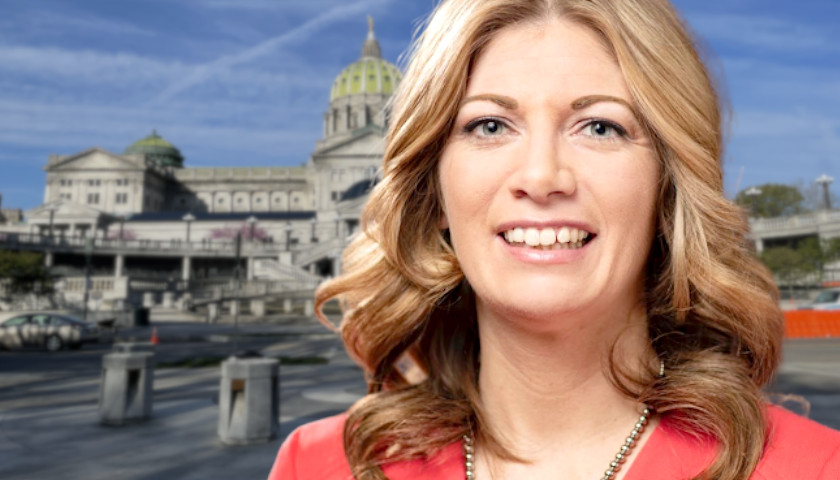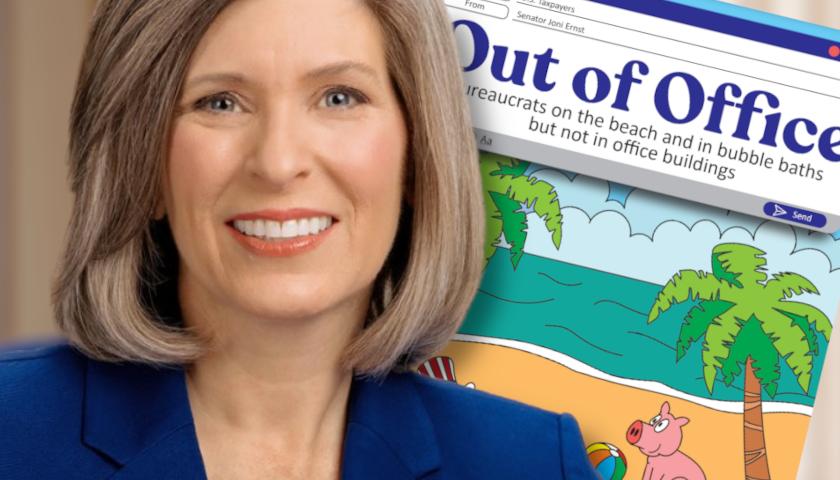State Senator Katie Muth (D-Royersford) announced this week she will introduce legislation to toughen Pennsylvania’s anti-price-gouging law despite economists’ general skepticism about such efforts.
As currently written, the state’s 2006 Price Gouging Act prohibits any entity “within the chain of distribution of consumer goods or services” to sell those products at “an unconscionably excessive price” during an official “state of disaster emergency” or 30 days thereafter. The law defines such a price as “an amount equal to or in excess of 20% of the average price” in the affected region before the emergency declaration.
A companion bill to a measure recently introduced in the House of Representatives, Muth’s proposal would apply the existing law to “periods of disruption caused by disease, such as a global pandemic.” Provisions of the law would newly cover post-disaster contracting fees as well as housing rents. And the section of the act empowering the state attorney general to litigate against alleged violators would extend to private citizens and county prosecutors.
In a memorandum asking fellow senators to co-sponsor her bill, the senator cited a June 2020 report from state Attorney General Josh Shapiro (D) that his office received more than 5,000 complaints that month regarding price gouging resulting from the COVID-19 outbreak.
“There have been numerous examples nationwide of companies exploiting desperate people during emergencies by charging excessively high prices, simply because they can,” Muth wrote. “Whether cleaning up after a storm or purchasing lifesaving personal protective equipment, they must be held accountable when they take advantage of people during their time of greatest need.”
The lawmaker’s perspective clashes with most experts’ opinions as to both the cause of unusually high prices during emergencies and the appropriate policy response to those spikes.
Disease outbreaks, weather disasters, and other crises can beget disruptions of supply as well as increased demand which in turn engender consumer-cost spikes. When the novel coronavirus arrived, for instance, hygiene products like hand sanitizer and toilet paper became scarcer and costlier.
But many analysts have warned against state intervention forcing sellers to charge less. Artificial price constraints, they argue, lead people to think less carefully about their consumption decisions during shortages and saddle suppliers with greater difficulty in meeting demand.
“Availability of a good will go down, not up” in response to price controls, Benjamin Zycher, an economist affiliated with the D.C.-based American Enterprise Institute, told The Pennsylvania Daily Star. “In the long run, availability will go down because if a producer of a good is subjected to the risks of periods during which prices are very low but they can’t get the advantage of periods during which prices are high, then that means that the expected price falls, so in the long run, production of the good — investment in producing the good — will go down and those of modest means will wind up worse off even if there’s never a ‘shortage.’”
Zycher also voiced concern that low-income job-seekers and wage earners suffer from price-gouging laws insofar as they limit economic growth. He said lawmakers who see a need to protect consumers from product-specific price spikes would do better to consider temporary income-transfer payments to poor people.
“Those have to be paid for with taxes, obviously, but that’s the best you can do, I think,” he said.
Muth’s measure is one among several bills Keystone-State Democrats proposed this year to address what they judge to be exorbitant price increases. The other policies include a measure to limit gasoline price hikes and two bills strengthening the power of the state attorney general to pursue antimonopoly cases and price-fixing allegations. None of those bills have received a committee vote.
On the federal level, Senator Elizabeth Warren (D-MA) in May introduced federal legislation intended to prevent price gouging. After she announced her bill, the University of Chicago’s Initiative on Global Markets (IGM) polled professors at America’s top-rated university economics programs. IGM asked whether the respondents favor barring large corporations from selling products at an “unconscionably excessive price” after markets experience major shocks.
Sixty-five percent of surveyed economists said they either disagreed or strongly disagreed. Only five percent said they agreed with that aspect of Warren’s bill, none strongly so.
– – –
Bradley Vasoli is managing editor of The Pennsylvania Daily Star. Follow Brad on Twitter at @BVasoli. Email tips to [email protected].
Photo “Katie Muth” by Katie Muth. Background Photo “Pennsylvania Capitol” by Dough4872. CC BY-SA 4.0.





